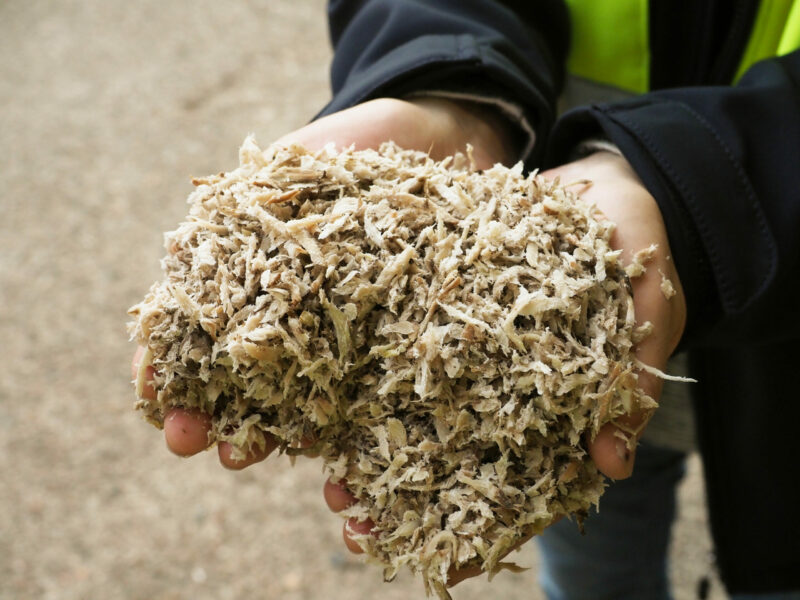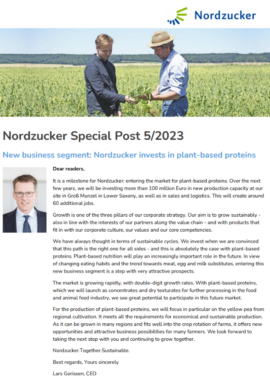
Nordzucker Post 01/2023 - 6 February 2023
Beet pulp for energetic self-use – a consistent concept
The focus of the political discussions remains on the energy topic. With the successful securing of the energy supply in the Nordzucker sites for the 2022/23 campaign, a future climate-neutral sugar production became all the more central.
With reference to the ongoing consultations at EU level on the Renewable Energy Directive (RED), we have highlighted in dialogue with parliamentarians and ministries in particular the great opportunities offered by the energy recovery of beet pulp (photo above) for a climate-neutral and energy-autonomous supply in sugar production. The use of beet pulp, which is already produced in the sugar factories, for the energy supply of the sites corresponds exactly to the politically expressed will to become independent of natural gas as quickly as possible and to advance the transformation to a climate-neutral energy supply. Politicians at the state, federal and EU levels have consistently shown themselves to be open to our concerns in personal dialogue. However, this support from individual parliamentarians and the united campaigning of the European sugar sector has not yet contributed to the necessary approval within the EU Commission, the EU Council or even the governments in the EU member states. Obviously, reservations based on a lack of knowledge and often a misunderstood food-fuel discussion are too stubborn.
The concept is to use the leached beet pulp produced during sugar extraction to produce biomethane for the company’s own sugar factories. About 60 per cent of the beet pulp is sufficient to cover the factories’ energy needs. There is no need for separate production or additional cultivation areas – from the beet for sugar production, the beet pulp remains – as a natural residue of sugar production.
Today, beet pulp is dried in an energy-intensive process and sold as animal feed (for ruminants). The share of beet pulp in the total animal feed market is only about one per cent throughout Europe. Overall, the path mapped out politically leads us to expect a decline in animal husbandry in the coming years, which will also have an impact on the feed market. Beet pulp is not a protein feed and is not substituted by soy imports. Surplus beet pulp is already in demand on export markets, e. g. in Asia.
For the trialogue between Parliament, Commission and Council, which is progressing at EU level, it is a matter of seizing this opportunity politically and making energy-autonomous and climate-neutral sugar production possible for the entire European sugar industry within a few years.


